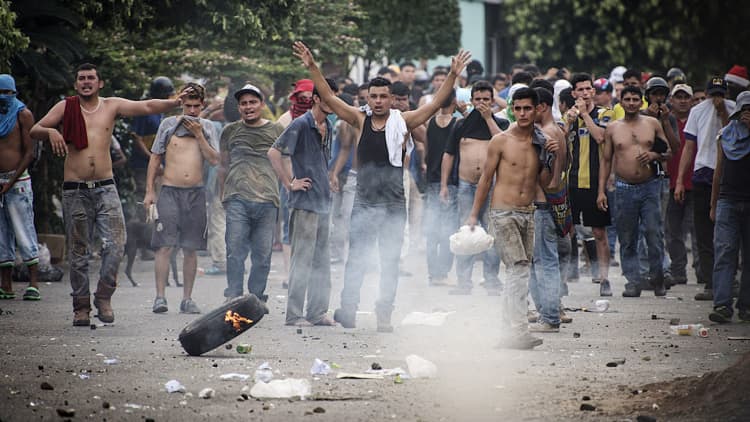Venezuela's latest effort to curb its economic free fall is one it's tried before, and it will probably yield the same results.
President Nicolas Maduro announced Monday night that his oil-exporting nation will put a new currency exchange rate in place next week. The new rate will replace the Dicom exchange rate, one of Venezuela's two official rates.
The problem is that nobody pays attention to the official exchange rate in Venezuela, a country wracked by inflation and whose people survive by buying food and other necessary items mostly on the black market.
This is a country that was an economic star in the region, and now we have a country with sub-Saharan conditions in our hemisphere.Jason Marczakdirector, Adrienne Arsht Latin America Center, Atlantic Council
"Ultimately, this is a fool's errand, because the government fails to address the major economic issues facing Venezuela," said Jason Marczak, director of the Latin America Economic Growth Initiative at the Atlantic Council's Adrienne Arsht Latin America Center. "Venezuela has launched a number of exchange rates over the years, and none of them have kept pace with the black market."
The Venezuelan bolivar currently trades around 710 per U.S. dollar under the Dicom exchange rate and at 10 under the Dipro rate, Venezuela's other official rate.
On the black market, however, a dollar can fetch around 3,000 bolivars.
"Venezuela is potentially near falling off a cliff," Marczak added. "I think that, with incredibly low foreign exchange reserves, and oil owed to China, then you combine that with four-digit inflation and the humanitarian crisis, there is not much they can do."
Venezuela has acquired loans from Beijing in exchange for the promise of deeply discounted oil exports.
The Latin American country is dealing with a massive shortage of basic goods that's exacerbated by sky-high inflation. Last year, Venezuela's inflation rate reached a staggering 800 percent. On top of that, the International Monetary Fund forecast last July that inflation would reach 1,600 percent in 2017.
US crude since October 2014
Source: FactSet
Crude exports are insufficient to keep Venezuela solvent, as oil prices are still about 50 percent below their October 2014 levels. That said, U.S. crude has bounced by about 85 percent since last year.
Business activity in Venezuela has virtually collapsed, with many companies and skilled workers leaving the country, Marczak said. "This is a country that was an economic star in the region, and now we have a country with sub-Saharan conditions in our hemisphere."
Watch: What's happening in Venezuela?



